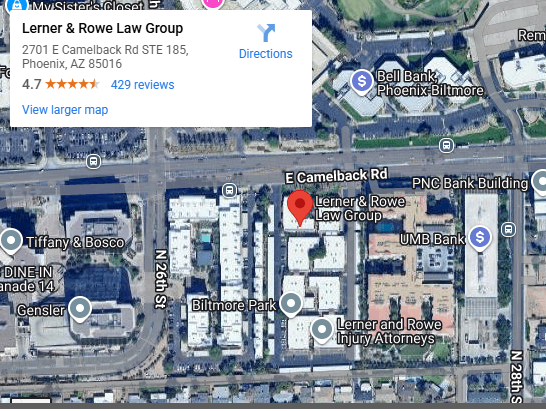Lawyers Who Care.
Phoenix Theft & Property Crimes Defense Lawyer
Facing a theft or property-crime allegation in Arizona can threaten your record, career, and immigration status. At Arizona Justice Law Group, attorney Zalman Sapad defends everything from first-time shoplifting to complex fraud, trafficking in stolen property, and burglary. We scrutinize valuation, ownership, and intent, attack weak identification or forensics, and position you for the best available outcome—dismissal, diversion, reduced charges, or minimized penalties.
Arizona’s Theft Framework
- Theft (A.R.S. § 13-1802). Broad statute covering taking, using, converting, or controlling another’s property without lawful authority and with required intent (e.g., to deprive).
- Shoplifting (A.R.S. § 13-1805). Concealing, removing, changing price tags, or otherwise taking retail goods without paying full value.
- Burglary (A.R.S. §§ 13-1506, -1507, -1508). Unlawful entry or remaining with intent to commit any theft or felony (3° = non-residential/fenced yard; 2° = residential; 1° = with a deadly weapon/dangerous instrument).
- Robbery (A.R.S. §§ 13-1902, -1903, -1904). Taking property from a person or immediate presence by force or threat (aggravated/armed robbery adds accomplice or weapon).
- Auto-related:
- Theft of Means of Transportation (A.R.S. § 13-1814). Felony auto theft.
- Unlawful Use of Means of Transportation (A.R.S. § 13-1803). “Joyriding” without intent to permanently deprive.
- Identity Theft (A.R.S. § 13-2008). Using another’s identifying info without permission.
- Theft by Extortion (A.R.S. § 13-1804). Obtaining property by threats.
- Trafficking in Stolen Property (A.R.S. § 13-2307).
- 2°: Knowingly trafficking stolen property (Class 3 felony).
- 1°: Organizing/directing trafficking (Class 2 felony).
- Organized Retail Theft (A.R.S. § 13-1819). Coordinated retail theft schemes or use of an artifice device; can be a felony regardless of value.
- Special rules (watch-outs):
- Firearm theft is generally a felony regardless of value.
- Some credit-card/financial-instrument conduct is charged under separate statutes (e.g., A.R.S. ch. 21).
Arizona Value Thresholds (Why a Few Dollars Matter)
Arizona uses value to set charge level for A.R.S. § 13-1802 theft (general guide; special items/charges may differ):
- Under $1,000 → usually Class 1 misdemeanor (unless special item like firearm).
- $1,000–$2,000 → Class 6 felony
- $2,000–$3,000 → Class 5 felony
- $3,000–$4,000 → Class 4 felony
- $4,000–$25,000 → Class 3 felony
- $25,000+ → Class 2 felony
Courts may consider fair market value, purchase price, replacement cost, and appraisals. We routinely challenge valuation to avoid tipping a case into a higher felony class or to support a misdemeanor-resolution strategy.
Quick Hypotheticals (Applying the Law to Real Life)
- Misdemeanor vs. Felony Line: A used laptop’s value is pegged at $1,050 based on a store printout. We present comparable listings and depreciation data to show FMV is $900—keeping it misdemeanor and opening the door to diversion.
- Shoplifting vs. Organized Retail Theft: Two friends pocket cosmetics using a booster bag. Evidence of the device and planning pushes it into organized retail theft. We fight the device enhancement and sever the cases to negotiate a straight shoplifting plea or a civil compromise.
- Theft vs. Joyriding: Roommate takes a car to pick up medicine, returns it undamaged. We argue no intent to permanently deprive (A.R.S. § 13-1803) and secure a non-theft resolution to protect licensing/employment.
Inside Knowledge: How Phoenix-Area Courts Handle These Cases
- Diversion & Deferred Prosecution: Many city courts (and some county matters) offer diversion for first-time, low-value shoplifting and certain low-level thefts—often with class, community service, and restitution. Eligibility varies by jurisdiction and facts.
- Video & Loss-Prevention (LP) Evidence: Retail LP video is often overwritten in 30–60 days. We send early preservation letters and subpoena training, camera coverage maps, and chain-of-custody logs to test reliability.
- Valuation & Aggregation: Prosecutors sometimes aggregate values across incidents as a “single scheme.” We push back where the proof of a single plan is weak.
- Civil Demands: Merchants may send civil demand letters (A.R.S. § 12-691). Payment does not equal guilt, but strategic civil resolutions can support criminal negotiations.
What We Fight (Defense Angles that Move the Needle)
- Intent & Claim-of-Right. Theft requires specific intent. We use texts, emails, receipts, policies, and witness statements to show permission, ownership, accident, or misunderstanding.
- Valuation Battles. FMV vs. replacement vs. MSRP—apples-to-apples is required. We bring expert appraisers where the number determines felony vs. misdemeanor.
- ID & Proof Problems. Thin eyewitness IDs, obstructed video, masked suspects, or sloppy LP documentation are fertile grounds for dismissal or reasonable-doubt arguments.
- Search & Seizure. Warrantless bag/phone searches, detentions beyond reasonable suspicion, or invalid consent can suppress key evidence.
- Shoplifting Elements. Concealment alone isn’t always enough. We challenge whether intent to deprive is actually proven under § 13-1805.
- Trafficking Knowledge. For § 13-2307, the State must prove the item was stolen and the accused knew it or should have.
- Mitigation & Restitution. Early restitution, treatment, employment/school proof, and community ties can reshape outcomes—from diversion to reduced counts/sentences.
Sentencing: What’s Realistically at Stake (and How We Reduce It)
Arizona’s first-time non-dangerous felony presumptive prison terms (A.R.S. § 13-702) are approximately:
- Class 2: 5 years | Class 3: 3.5 years | Class 4: 2.5 years | Class 5: 1.5 years | Class 6: 1 year
Judges can go lower (mitigated) or higher (aggravated) based on factors like:
- Aggravation: high value, multiple victims, sophisticated planning, prior record.
- Mitigation: restitution, clean record, documented hardship, cooperation, treatment.
Class 6 “undesignated” convictions can sometimes be later designated a misdemeanor upon successful completion of terms—an important record-protection tool we pursue when eligible.
Record relief: Arizona now allows set-asides (A.R.S. § 13-905) and, in many cases, record sealing (A.R.S. § 13-911) after waiting periods. We advise you on eligibility and timing; results are never guaranteed.
Appellate Guidance That Informs Our Strategy (Plain-English Takeaways)
Arizona case law repeatedly emphasize:
- Robbery requires force or threat during the taking from the person/immediate presence (helps distinguish robbery vs. mere theft).
- Burglary intent can be inferred from circumstances, but the State must still prove intent to commit a theft/felony at entry or while remaining.
- Value proof must be competent—unsupported replacement quotes or speculative MSRP aren’t enough for felony thresholds.
- In trafficking, the State must show the accused knew property was stolen—mere possession or resale isn’t automatically guilt.
(We apply these holdings to attack over-charging, exclude weak valuation, and split robbery/burglary counts that don’t fit the facts.)
Case-Building Tactics We Use Early
- Preservation letters to retailers and third parties (video/audio, POS logs, EAS data).
- Rapid valuation work-ups (comps, depreciation, appraisals).
- Ownership/permission proofs (HR policies, emails, texts, Venmo/Zelle trails).
- Forensics when needed (phone/device data to show timeline and intent).
- Parallel civil solutions (restitution & civil-demand management) to influence criminal charging/pleas.
Frequently Overlooked Off-Ramps
- Diversion / Deferred Prosecution (case dismissed on completion) for eligible first-timers.
- Misdemeanor redesignation (Class 6 undesignated) post-completion.
- Split-the-baby pleas (e.g., burglary → criminal trespass + misdemeanor theft).
- Non-theft substitutes where intent is contestable (e.g., disorderly conduct, criminal damage).
Practical Client Tips (Protect Your Case)
- Don’t discuss facts with anyone but counsel; assume you’re being recorded in LP offices.
- Save receipts, messages, calendars, bank records—they often win “intent” fights.
- Do not sign civil-demand agreements without legal advice.
- If contacted by an investigator, politely decline and refer to counsel.
Ready to Talk Strategy?
Arizona Justice Law Group — Founding Attorney, Zalman Sapad
📞 (602) 730-1756 | 📧 ArizonaJusticeLawyer@gmail.com | Contact Arizona Justice Law
We’ll review charging documents, police reports, video, and valuation—and give you a clear, candid plan tailored to your facts and goals. No promises or guarantees—just focused advocacy and relentless attention to detail.







